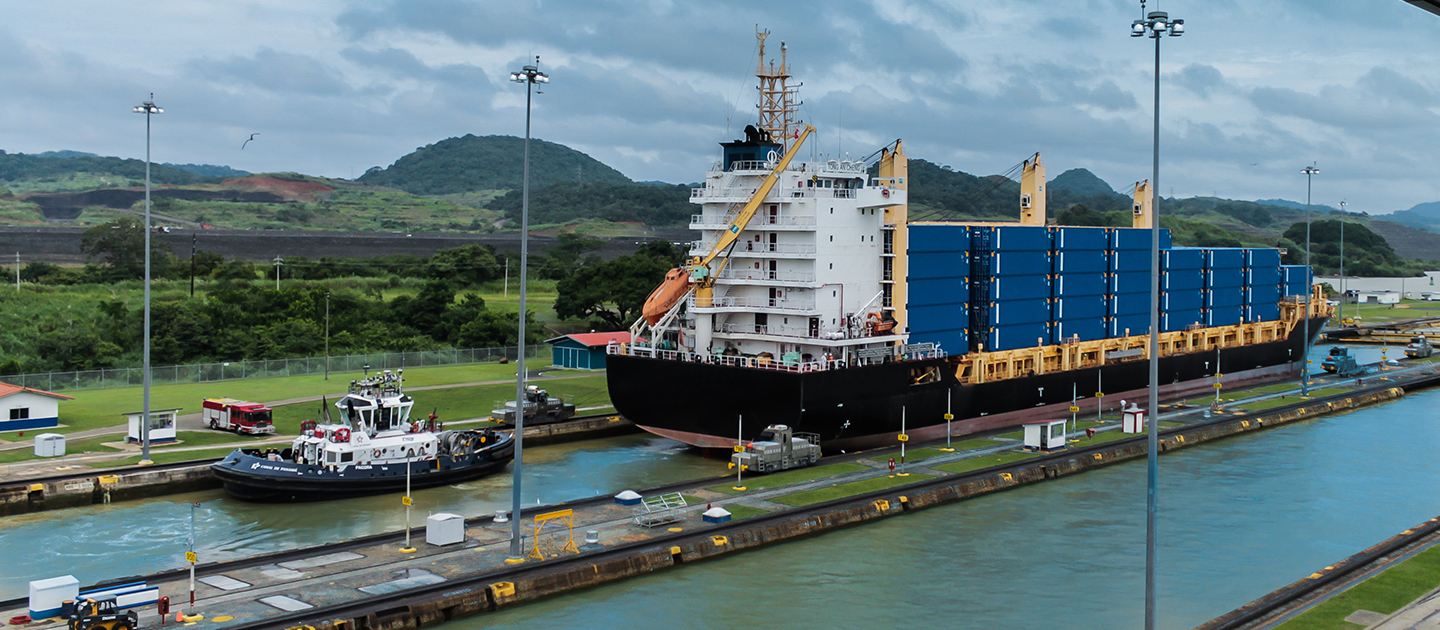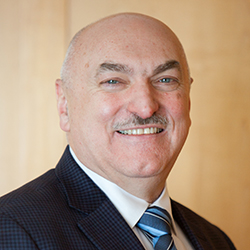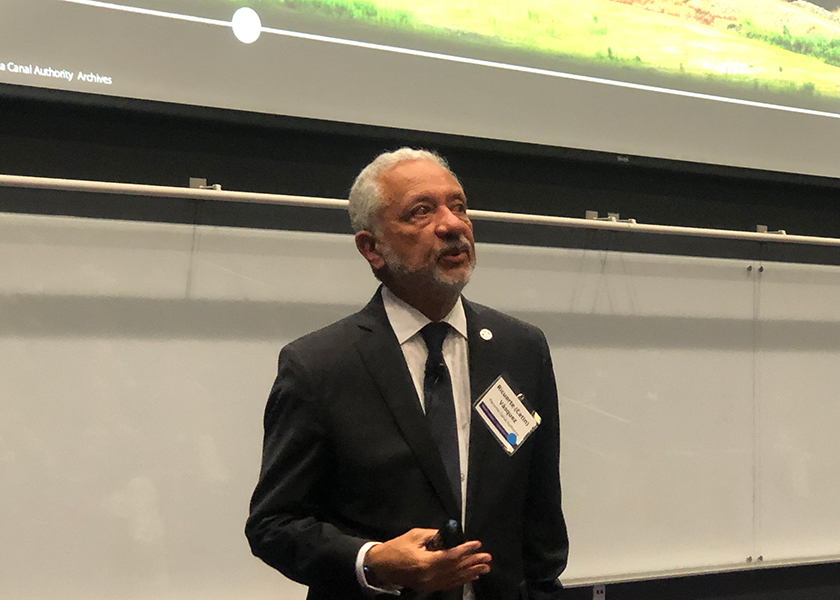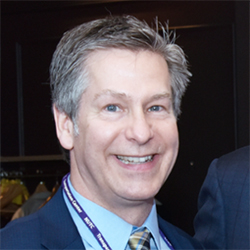 Events
EventsPanama Canal Leader Outlines Vision for Water Security, Community Impact
Ricaurte Vásquez Morales spoke at the NUTC’s Patterson Lecture

Completed in 1914, the Panama Canal is a marvel of modern engineering. An artificial 51-mile waterway that cuts through the Isthmus of Panama, the Canal connects the Pacific Ocean and Caribbean Sea and allows quicker maritime trade between the Pacific and Atlantic Ocean.
Until December 31, 1999, the Canal was controlled by the United States before command went to Panama in accordance with a 1977 treaty. Since the turn of the century, it’s been up to Panama to make sure the Canal – which handles around 5 percent of all maritime trade – keeps pace with technology while being an asset for the Panamanian people.

The man most responsible for that task now is Ricaurte Vásquez Morales, an economist and the administrator of the Panama Canal Authority through 2026.
“We improved the operation of the Canal and its reliability by building a reservoir to assure that we have fresh water. We are not limiting our target just to that,” Vasquez said of the freshwater-dependent Canal. “We have proved to the world that we can run it. We have proved to the world we can expand it (by building new locks in 2016). We are going to prove to the world that we can take it to the next level.”
Vasquez delivered the 43rd Annual William A. Patterson Distinguished Transportation Lecture, held May 7 at the Walter Athletics Center Auditorium. Hosted by the Northwestern University Transportation Center (NUTC), the lecture is named for William A. “Pat” Patterson, a central figure in the US air transport industry for more than four decades who served as president and chairman of United Airlines from 1934 until his retirement in 1966. He was a life trustee of Northwestern University and was instrumental in the establishment and strategic leadership of the NUTC.
Vasquez was introduced by NUTC director Hani Mahmassani, William A. Patterson Distinguished Chair in Transportation and professor of civil and environmental engineering. Introductory remarks were also delivered by Jeff Silver, the founder of Mastery Logistics Systems and chairman of the NUTC’s Business Advisory Council.

In front of a packed auditorium, Vasquez outlined the history of Panama, the Isthmus of Panama, and the background of the Canal. He also made clear the importance of the Panamanian people benefiting from the Canal, even though the waterway itself has little effect on the country’s trade.
To power the Canal and allow it to keep running during droughts, two man-made lakes were constructed to act as reservoirs. Gatun Lake (completed in 1913 by damming the Chagres River) and Lake Alajuela (first flooded in 1935 by damming the Madden River) are both the country’s primary freshwater reservoirs and serve the Canal.
Of course, maintenance and improvements are not cheap. Over the last 25 years, the Panama Canal Authority has spent $15 billion to expand capacity while building new water-saving locks that reuse water.
To Vasquez, that money is well-spent.
“We assure that the Panama Canal watershed is operational, and the only way to do that is to address individual community needs,” Vasquez said. “Yes, the Panama Canal serves international trade, but for international trade to be served, community needs must be addressed too.”
Industry workshop examines AI, logistics, and customer service
Earlier in the day at The Hive inside the Ford Motor Company Engineering Design Center, the NUTC and hosted the Spring 2025 Industry Workshop: How AI Will Be/Is (?) Moving Freight. Co-chaired by Mahmassani and Bret Johnson, NUTC senior associate director and director of the Center for the Commercialization of Innovative Transportation Technology, the event explored AI’s growing role in logistics management, and its potential to further automate communication, streamline workflows, and improve overall efficiency.
Speakers at the event were Harish Abbott, cofounder and CEO, Augment LLC; Jesse Buckingham, cofounder, Vooma; Kris Forrest, head of sales, GenLogs; Prasad Gollapalli, CEO and chairman, Qued; Pablo Palafox, cofounder and CEO, HappyRobot Inc.; and Paul Singer, cofounder and CEO, FleetWorks.
One theme was the efforts to ensure trust in AI from all stakeholders, including customers, freight companies, and more. During a Q&A session moderated by John Larkin, senior investment partner, Venture53, Buckingham said leaders’ attitudes toward AI have shifted over the past 6-9 months. The fear, he said, has evolved from not wanting to learn a new tool at all, to not implementing the tool.
“What’s shifted is it does feel like there’s a higher sense of urgency now around wanting to implement AI, both at an executive level and also at the employee level,” Buckingham said.
